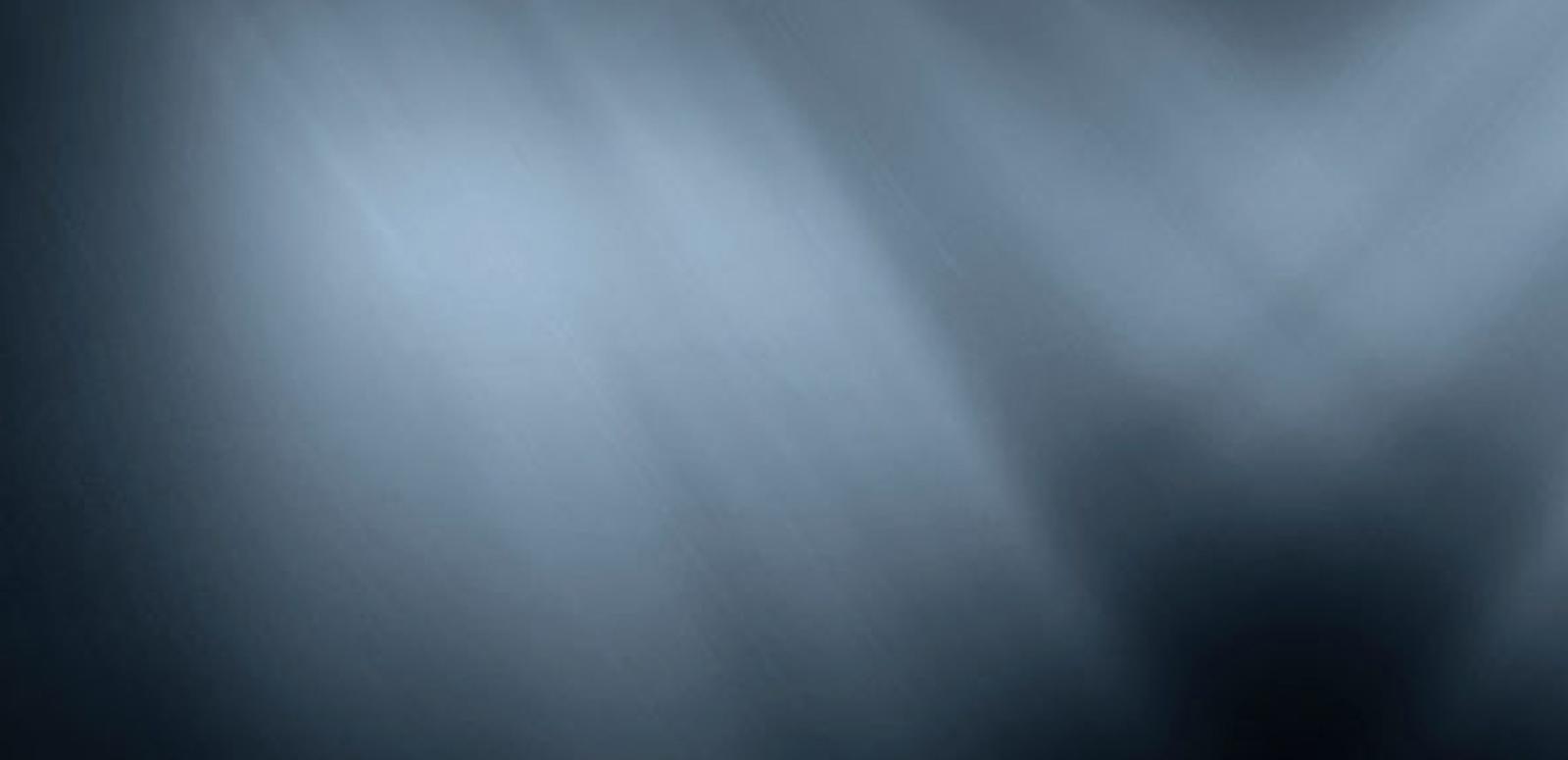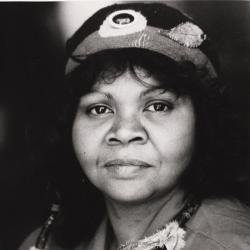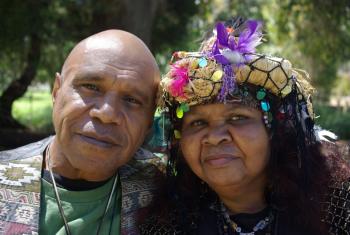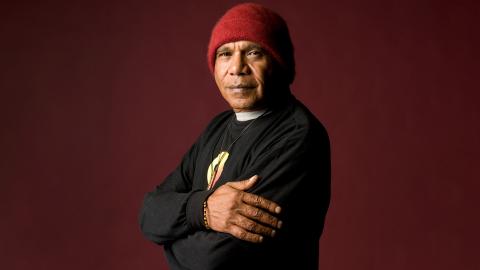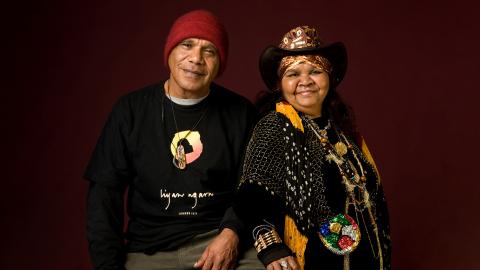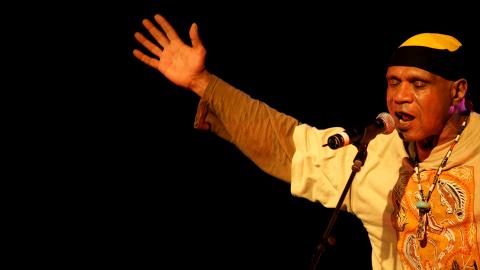WARNING: this article contains names, images or voices of deceased Aboriginal and Torres Strait Islander people.
We were deeply saddened to hear the news about the passing of Gunditjmara (Kirrae Whurrong/Djab Wurrung), Bundjalung Senior Elder, songman and storyteller, Archie Roach on 30 July 2022. Archie was one of the most remarkable Australian songwriters of the past 40 years and much of his work is preserved in the NFSA collection.
Family, Identity and Music
Archie was born on 8 January 1956, in Mooroopna, Victoria. At the age of 2, he became a child of the Stolen Generations. He was forcibly removed from his family, placed in foster care and informed that he was an orphan.
He was eventually fostered by a family of Scottish immigrants, Alex and Dulcie Cox, who had a major influence on his interest in music. Alex would play music by artists including Mahalia Jackson, The Ink Spots, Nat King Cole and Sam Cooke, among others. Archie described these early influences in a 2009 interview with Robbie Thorpe at 3CR:

